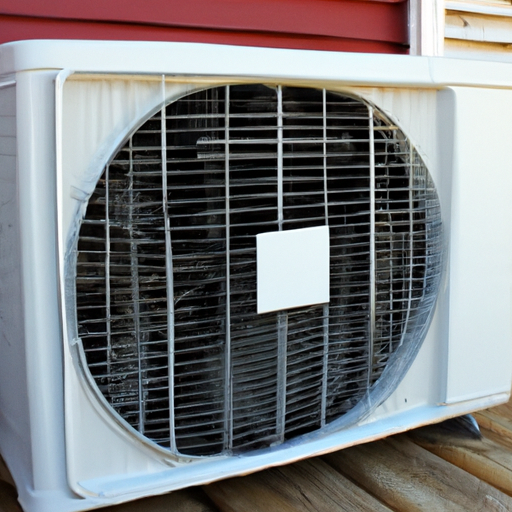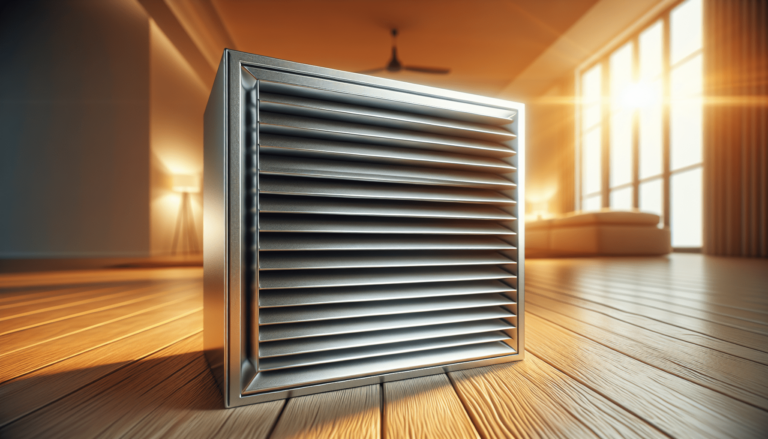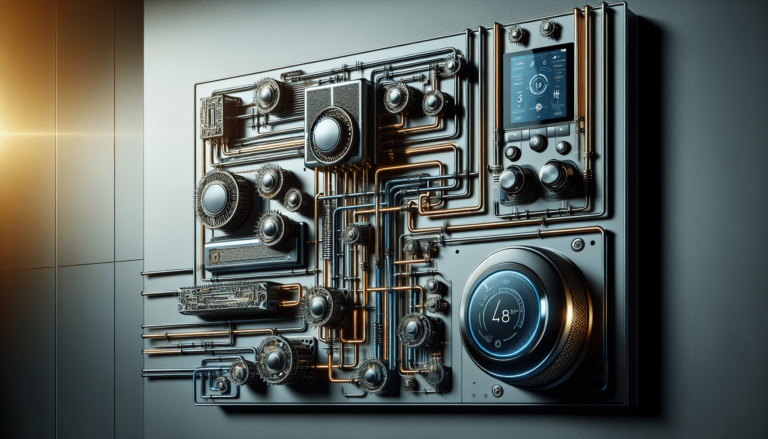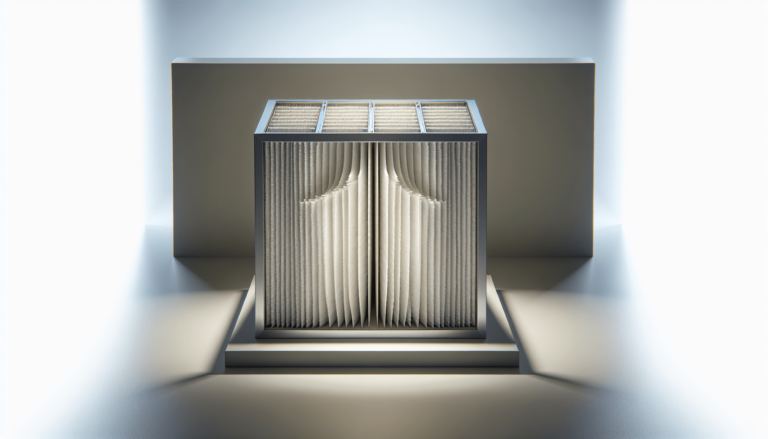

HVAC Services
Get Professional Repairs From The Area's Trusted HVAC Technicians. Ask About Our Services! We Offer Professional Heating & Cooling System Repairs And Guarantee Long-Lasting Results.
Got Question? Call us: (850) 678-2665Financing
Understanding The Lifespan Of Your HVAC Equipment
Looking to understand the lifespan of your HVAC equipment? This informative article explores factors that affect its lifespan and offers tips to maximize longevity. Keep reading to learn more.

Have you ever wondered how long your HVAC equipment will last? It’s an important question, as the lifespan of your heating, ventilation, and air conditioning system can have a significant impact on your comfort and budget. In this article, we’ll explore the factors that can affect the lifespan of your HVAC equipment, providing you with a better understanding of how long you can expect it to last. From regular maintenance to the quality of installation, we’ll cover it all. So, if you’re looking to maximize the lifespan of your HVAC equipment and ensure optimal performance, keep reading!
Factors Affecting HVAC Lifespan
Quality of Installation
The quality of the installation plays a crucial role in determining the lifespan of your HVAC equipment. A properly installed system will function efficiently and effectively, while a poorly installed one can result in various issues and premature wear and tear. It is essential to hire a professional HVAC technician who has the expertise and experience to ensure a correct installation.
Equipment Maintenance
Regular maintenance is vital to keep your HVAC system running smoothly and extend its lifespan. Neglecting maintenance tasks can lead to reduced efficiency, increased energy consumption, and potential breakdowns. By scheduling routine maintenance with a qualified technician, you can address minor issues before they escalate and keep your equipment in optimal condition.
Climate and Weather Conditions
The climate and weather conditions in your area can significantly impact the lifespan of your HVAC equipment. Extreme temperatures, high humidity, and harsh weather conditions can put additional strain on your system, causing it to work harder and potentially leading to premature wear and tear. It is important to consider these factors when choosing and maintaining your HVAC equipment.
Usage and Load
The frequency of use and the workload on your HVAC system can affect its lifespan. If you have a residential HVAC system that is used for just a few hours a day, it will generally have a longer lifespan compared to a system that is constantly running in a commercial setting. Excessive usage and overloading can lead to faster wear and tear, so it is essential to ensure that your system is suitable for the specific requirements of your environment.
Air Quality
Air quality can also impact the lifespan of your HVAC equipment. Poor air quality, such as dust, dirt, allergens, and pollutants, can accumulate within the system and cause clogs, reduced efficiency, and potential damage. Regularly cleaning or replacing air filters and ensuring proper ventilation can help maintain good air quality and prolong the lifespan of your HVAC equipment.
Average Lifespan of HVAC Equipment
Furnaces
On average, a well-maintained and properly installed furnace can last between 15 to 20 years. However, the lifespan of a furnace can be influenced by several factors, including the quality of the unit, the frequency of maintenance, and the usage. Regular maintenance and prompt repairs can help maximize the lifespan of your furnace.
Air Conditioners
The average lifespan of an air conditioner ranges between 10 to 15 years. Similar to furnaces, proper maintenance and prompt repairs are essential in extending the lifespan of your air conditioning unit. Choosing a high-quality unit and ensuring adequate airflow and ventilation can also contribute to a longer lifespan.
Heat Pumps
Heat pumps, which provide both heating and cooling functions, typically have a lifespan of 10 to 15 years. Regular maintenance, proper insulation, and suitable usage can help maximize the lifespan of your heat pump. It is important to pay attention to the specific manufacturer’s recommendations for maintenance and usage to ensure optimal performance and longevity.
Boilers
Boilers generally have a longer lifespan compared to other HVAC equipment, with an average of 15 to 30 years. The lifespan of a boiler can be influenced by factors such as the quality of the unit, maintenance, water quality, and usage. Regular maintenance, including cleaning and proper water treatment, is crucial in preserving the efficiency and lifespan of your boiler.
Signs of Aging HVAC Equipment
Decreased Efficiency
As HVAC equipment ages, its efficiency may decline. You may notice that your system takes longer to reach the desired temperature or that it struggles to maintain consistent comfort levels. Decreased efficiency can result in higher energy consumption and increased utility bills.
Increased Energy Bills
If you notice a sudden spike in your energy bills, it could be a sign of aging HVAC equipment. As systems age, they become less efficient and require more energy to provide the same level of heating or cooling. Monitoring your energy bills and comparing them with previous years can help you identify potential issues with your HVAC equipment.
Frequent Repairs
As HVAC equipment reaches the end of its lifespan, it may require more frequent repairs. Aging components can become worn, damaged, or malfunction, leading to breakdowns and costly repairs. If you find yourself constantly calling for HVAC repairs, it may be time to consider replacing your equipment.
Uneven Temperatures
If you notice significant temperature differences throughout your home or workspace, it could be a sign of aging HVAC equipment. Aging systems may struggle to distribute air evenly, resulting in hot or cold spots. Proper maintenance and system evaluation can help address this issue and improve the comfort in your space.
Strange Noises or Smells
Unusual noises or smells coming from your HVAC system can indicate underlying issues. As equipment ages, components may become loose, worn, or damaged, resulting in rattling, banging, or squealing noises. Strange smells, such as musty odors or burning odors, can also be signs of aging equipment and potential hazards. It is essential to have these issues addressed promptly by a qualified technician.
Extending the Lifespan of Your HVAC Equipment
Regular Maintenance
One of the most effective ways to extend the lifespan of your HVAC equipment is through regular maintenance. Scheduling annual or bi-annual maintenance visits with a qualified technician can help identify and address minor issues before they turn into major problems. Regular maintenance typically involves cleaning, inspecting, lubricating, and adjusting components to ensure optimal performance.
Changing Air Filters
Regularly changing or cleaning air filters is another essential maintenance task that can extend the lifespan of your HVAC equipment. Clogged or dirty filters restrict airflow and make your system work harder, leading to increased energy consumption and potential damage. Depending on your system and usage, filters should typically be changed every one to three months.
Proper Insulation
Proper insulation is crucial in maintaining the efficiency and longevity of your HVAC system. Insulation helps prevent heat loss or gain through walls, floors, and ceilings, reducing the workload on your equipment. By ensuring adequate insulation in your home or workspace, you can enhance comfort, reduce energy consumption, and prolong the lifespan of your HVAC equipment.
Installing Programmable Thermostat
Installing a programmable thermostat can help optimize the usage of your HVAC system and extend its lifespan. With a programmable thermostat, you can set temperature schedules that align with your daily routine, reducing unnecessary heating or cooling when no one is present. This can help lower energy consumption, reduce wear and tear on your equipment, and increase its overall lifespan.
The Importance of Regular Maintenance
Preventive Maintenance
Regular maintenance is not only important for extending the lifespan of your HVAC equipment but also for preventing potential problems. Preventive maintenance involves thorough inspections, cleaning, and adjustments to ensure that your system is functioning at its best. By addressing minor issues before they escalate, you can avoid costly repairs and unexpected breakdowns.
Cleaning and Lubrication
Cleaning and lubricating various components of your HVAC system are essential maintenance tasks that help ensure optimal performance and longevity. Dust, dirt, and debris can accumulate in the system, leading to clogs, reduced efficiency, and potential damage. Cleaning coils, fans, and other components and lubricating moving parts can help maintain proper operation and extend the lifespan of your equipment.
Inspecting and Repairing Components
Regular inspections of your HVAC system can help identify worn, damaged, or malfunctioning components. By assessing the condition of various parts, such as motors, belts, electrical connections, and sensors, you can address potential issues proactively and prevent further damage. Prompt repairs can help restore functionality and prevent more significant problems down the line.
System Calibration
Proper calibration of your HVAC system is crucial for optimal performance and energy efficiency. Over time, settings and controls may become misaligned or inaccurate, leading to inefficient operation and potential wear on components. A qualified technician can calibrate your system to ensure that it operates at its intended specifications, maximizing its lifespan and performance.
Replacing vs Repairing HVAC Equipment
Factors to Consider
When your HVAC equipment starts showing signs of aging, you may face the decision of whether to repair or replace it. Several factors should be considered when making this decision, including the age of the equipment, the extent of the problem, the overall condition, and the cost of repairs versus replacement. Consulting with a trusted HVAC professional can help you make an informed decision based on these factors.
Cost Comparison
Comparing the costs of repairs versus the cost of replacement is an essential consideration. While repairs may seem more affordable in the short term, frequent repairs and increasing maintenance costs can add up over time. In some cases, investing in a new, more efficient system may actually save you money in the long run.
Energy Efficiency
Another factor to consider when deciding between repair and replacement is energy efficiency. Older HVAC equipment tends to be less energy-efficient compared to newer models. By upgrading to a more energy-efficient system, you can reduce your energy consumption and potentially qualify for energy-saving incentives or rebates.
Comfort and Performance
The comfort and performance of your HVAC system should also be taken into account. If your aging system cannot adequately cool or heat your space, even after repairs and maintenance, it may be time to consider a replacement. Upgrading to a new system can provide improved comfort, better air quality, and advanced features, enhancing your overall satisfaction.
Costs Associated with HVAC Replacement
Initial Equipment Cost
The initial cost of purchasing and installing new HVAC equipment can vary depending on several factors, including the type of system, its capacity, and the complexity of the installation. It is important to consider the long-term benefits and potential energy savings when evaluating the initial equipment cost.
Installation Cost
In addition to the equipment cost, you must also consider the cost of professional installation. It is highly recommended to hire a qualified HVAC technician to ensure proper installation and avoid potential issues that can arise from improper installation. While professional installation may add to the upfront cost, it can save you money in the long run by preventing unnecessary repairs and maximizing the lifespan of your equipment.
Energy Efficiency Savings
One of the long-term benefits of investing in a new HVAC system is the potential for energy efficiency savings. Newer models are designed to be more energy-efficient, which can result in reduced energy consumption and lower utility bills. Consider the potential energy savings when evaluating the overall cost of replacing your HVAC equipment.
Tax Credits and Incentives
When replacing your HVAC equipment, it is worth researching available tax credits and incentives that may be applicable in your area. Various government and utility programs offer incentives for upgrading to energy-efficient systems. These incentives can help offset the cost of replacement and provide additional savings in the long run.
Choosing the Right HVAC System
Size and Capacity
Choosing the right size and capacity for your HVAC system is crucial for optimal performance and efficiency. An oversized system will cycle on and off frequently, leading to energy waste and unnecessary wear and tear. Undersized systems, on the other hand, may struggle to meet the demand and provide adequate heating or cooling. Consulting with an HVAC professional can help determine the appropriate size and capacity for your specific needs.
Energy Efficiency Ratings
When considering HVAC systems, it is important to pay attention to energy efficiency ratings. Energy-efficient models have higher Seasonal Energy Efficiency Ratio (SEER) ratings for air conditioners and Heat Seasonal Performance Factor (HSPF) ratings for heat pumps. Higher ratings indicate greater efficiency and potential energy savings.
Available Features
Modern HVAC systems come with a variety of features designed to enhance comfort and convenience. These features may include programmable thermostats, zoning capabilities, air purification systems, and smart home integration. Assess your specific needs and preferences and choose a system that offers the features that align with your requirements.
Professional Installation
Professional installation is essential for ensuring that your HVAC system operates at its best. Hiring a qualified and experienced HVAC technician can help you avoid potential issues that can arise from improper installation. Professional installation ensures that all components are correctly connected and calibrated, maximizing the lifespan and performance of your new HVAC system.
HVAC Maintenance Checklist
Cleaning or Replacing Air Filters
Regularly cleaning or replacing air filters is a simple yet important maintenance task. Clogged or dirty filters restrict airflow and reduce the efficiency of your HVAC system. Depending on your system and usage, filters should typically be cleaned or replaced every one to three months.
Checking and Cleaning Coils
Evaporator and condenser coils can accumulate dirt and debris over time, reducing their ability to transfer heat efficiently. Regularly checking and cleaning these coils can help maintain their performance and prevent energy waste. It is recommended to have a professional technician perform this task, as it may require specialized tools and knowledge.
Inspecting and Lubricating Fan Motor
The fan motor in your HVAC system may require regular inspection and lubrication to ensure proper operation and minimize the risk of wear and tear. Checking the motor for any signs of damage or overheating and lubricating its moving parts as recommended by the manufacturer can help prolong its lifespan.
Checking Refrigerant Levels
Proper refrigerant levels are crucial for the optimal performance of your air conditioner or heat pump. If refrigerant levels are too low, your system may struggle to provide adequate cooling or heating. Regularly checking and maintaining the correct refrigerant levels can help ensure the efficiency and longevity of your HVAC equipment.
Conclusion
Understanding the factors that affect the lifespan of your HVAC equipment is essential in maximizing the longevity and efficiency of your system. Proper installation, regular maintenance, and attention to usage and environmental factors can significantly impact the lifespan of your HVAC equipment. By following a proactive maintenance routine and considering possible repairs or replacements when necessary, you can ensure that your HVAC system serves you well for many years to come.







